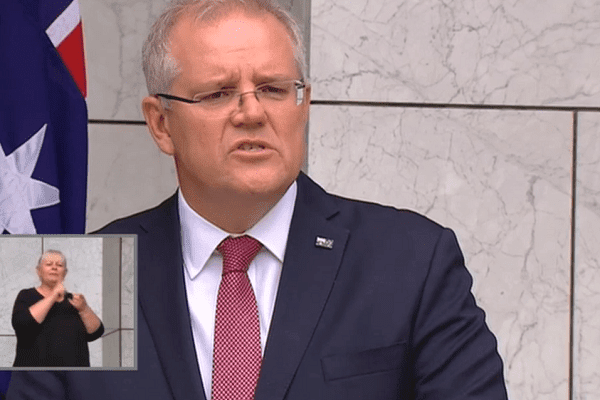Right now, there are 26,000 Australians lobbying the government to implement reasonable measures and a workable cap for them to safely return home after spending months stranded overseas. 4000 of these individuals are categorised as vulnerable.
Few of these residents are residual holidaymakers. They’re individuals and families who have been building their lives in other parts of the world, but who now face precarious circumstances as countries globally fight their own battles and navigate the pandemic’s fallout. The imperative for these people to be back in Australia with safeguards is critical.
Sarah Stirzaker and her husband James have been living and working in London for three years. Nine months pregnant, Sarah’s first baby is due any day but she’s already preparing to be couch surfing with a newborn in a matter of weeks when their lease comes to an end.
At the beginning of the pandemic (and at 3 months pregnant), Sarah and James were forced to make a decision on whether they’d return to Australia before the implemented deadline of March 17 or stay put given they were safe, had jobs and permanent accomodation. The advice from the Australian government at the time was to do the latter– an inconvenient fact now forgotten, says Sarah.
“Scott Morrison and the various state premiers have consistently defended their policies by saying Australians were told to return home on 17 March and therefore deserve to be stuck,” she says. Describing this as “politically convenient,” picked up and run with by the mainstream media, Sarah adds that this line is also “a blatant lie”.
“The actual government advice was if you have a job and accommodation and are safe where you are, you should stay put. There was no indication that Australia would impose restrictions on entry that would continue indefinitely if we did not return,” she says.
“The advice was in fact posed as travel advice for tourists rather than expats and certainty not a ‘follow it or you’re dead to us’ threat.”
Packing up and returning home at the start of the crisis would have also been financially reckless for the couple, especially Sarah, who would have lost rights to parental leave. Moreover, it flew against the advice of the World Health Organisation.
“To leave London as a pregnant women I would have had to quit my job and lose my entitlement to maternity leave, broken the lease on my apartment at a cost of around £9000 and gone against the health and safety advice of the World Health Organisation, that as a pregnant woman, I should be shielded.”
Sarah would have had to return to Australia, search for work in an overcrowded job market during a downturn with no new entitlement to employer maternity leave. The irony of this equation isn’t lost on her.
“I would have inevitably ended up requiring some level of government assistance which would have cost a lot more than the cost of quarantining me will now,” she says incredulously.
Despite the personal risks of trying to get back to Australia quickly, and the fact it was at odds with health advice, Sarah and James were guided by helplessness. Since mid-March, they have attempted to get back home on several occasions but each time failed. All of their flights have been cancelled; including a November Singapore Airlines flight booked through STA travel– a company now facing insolvency.
Australia’s weekly cap of about 4000 overseas arrivals has led to airlines prioritising business and first-class passengers to remain profitable, with planes carrying as few as four economy passengers.
Stranded citizens have even been encouraged by government officials to start ‘Go Fund Me’ style fundraisers to be able to purchase business class flights or withdraw funds prematurely from their superannuation. For women, who already face a 28% gap in their retirements savings to men, this is truly concerning.
The UK, which is now on the brink of a second lockdown, and overburdened by the grim reality of the pandemic, is currently a volatile place to live. For Sarah and James, the prospect of giving birth to their first child without adequate familial support is daunting.
“Originally both sets of Australian-based grandparents would have been here for the birth but had their flights cancelled quite early on due to the restrictions on Australians leaving the country,” says Sarah. There is now little hope of them visiting the UK for many months.
“We are well aware that come the end of November, when our lease has expired and all our belongings are packed up, we will very likely find ourselves couch surfing indefinitely with a 6 week old while we wait for the government to get its act together and start taking responsibility for its citizens,” Sarah adds.
Whether the government faces up to its international obligations this year, is another matter.


